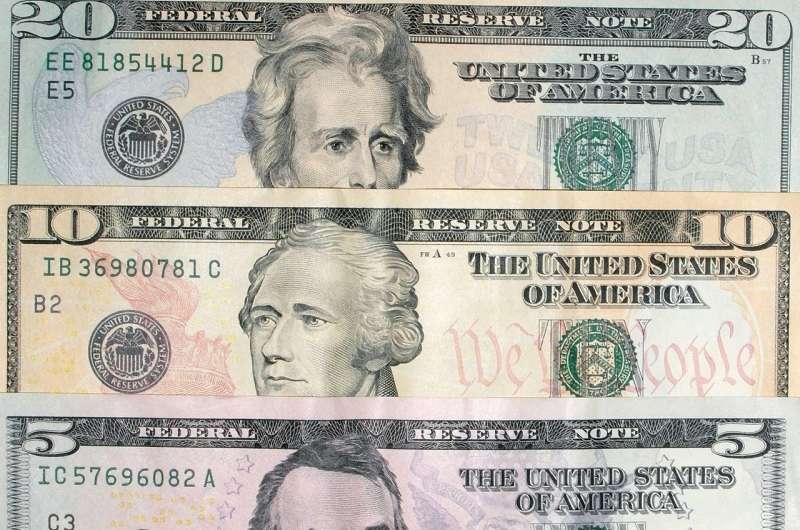Who should be on the $10 and $20 bills? How race, gender, and politics shape public opinion

Race, gender, political affiliation, and the prejudices and biases associated with them (racism, sexism, and political ideology) seem to be at the forefront of citizen's minds when it comes to preferences for US currency—specifically, who should be on the $10 and $20 bills. The findings come from research published in the Journal of Applied Social Psychology.
Investigators found that among nationally representative samples of the US population, individuals showed in-group favoritism. For example, those of high-status groups (i.e., Whites, males) sought to maintain the status quo and the dominance of the groups they belonged to. Individuals from lower-status groups (i.e., Blacks, females) and individuals who desired to change the status quo (i.e., Democrats, liberals, less sexist and racist individuals) preferred to have a woman on the $10 bill instead of Hamilton. Similar results were seen when individuals were asked about replacing Andrew Jackson with Harriet Tubman on the $20 bill.
"A bill of money is not just a piece of paper. The person depicted on US currency is either an in-group member that people identify with, or an out-group member that people do not identify with," said lead author Prof. Brad Bushman, of Ohio State University. "It is important to people that the individuals depicted on US currency are representative of their own groups."
More information: Journal of Applied Social Psychology (2018). DOI: 10.1111/jasp.12527
Journal information: Journal of Applied Social Psychology
Provided by Wiley


















